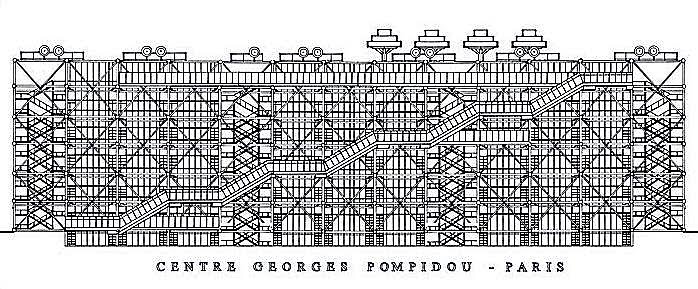
Fig.1. For online learning to work you need scaffolding - Drawing by Simon Fieldhouse
Levels of interaction and support
- Drop out rates from 20-50% for online courses ... more than for traditional courses.
A full breakdown of the figures, how prepared, representing which institutions and student groups would be helpful. Anyone can use a statistic if they don't identify its source.
Really this bad?
But if they've paid their fees the college has its cash and can free up resources. Do the bean counters recognise the contribution those quitting to make a course viable, let alone profitable? Educational Institutions should go to extraordinary lengths to attract and retain the right people to courses and to keep them on board and fully engaged.
A major issue is the degree of academic integration.
- Performance
- Academic self-esteem
- Identity as a student
Against sticking with a course are :
- isolation
- instructional ineffectiveness
- failing academic achievement
- negative attitudes
- overall dissatisfaction with the learning experience
Self-directed skill set:
- self-discipline
- the ability to work alone
- time management
- learning independence
- a plan for completing
Especially Self-directed learning skills ... that are developed in a social context through a variety of human-oriented interactions with peers and colleagues, teams, informal social networks, and communities of practice.
'These challenges to the retention of distance learners, interestingly enough, have something in common, they seem to hinge on learners' need for significant support in the distance learning environment through interaction with others (e.g. peers, instructors, and learner support services personnel).' Tait (2000)
The central functions of learner support services for students in distance education settings are:
- cognitive
- affective
- systemic
Scaffolding - ZPD (Vygotsky, 1934) Scaffolding involves providing learners with more structure during the early stages of a learning activity and gradually turning responsibility over to learners as they internalize and master the skills needed to engage in higher cognitive functioning. (Palinscar, 1986; Rosenshine and Meister, 1992).
Scaffolding has a number of important characteristics to consider when determining the types of learner support services distance students may need:
Academic course 'scaffolding':
- Provides structure
- Functions as a tool
- Extends the range of the learner
- Allows the learner to accomplish a task that would otherwise not be possible
- Helps to ensure the learner's success
- Motivates the learner
- Reduces learner frustration
- Is used, when needed, to help the learner, and can be removed when the learner can take on more responsibility.
(Greenfield, 1984; McLoughlin and Mitchell, 2000; Wood et al., 1976)
'Scaffolding is an inherently social process in which the interaction takes places in a collaborative context.'
In relation to learning with the Amateur Swimming Association (ASA)
- Are people coming onto the Level II course who are not yet suitable? Do they submit a learning orientation questionnaire?
- Is the candidate's club or pool operator giving them ample assistant teaching opportunities and support?
Mentors utilise the items gathered during the admissions process - data from the intake interview, self-assessment, diagnostic pre-assessment, and Learning Orientation Questionnaire - to develop to Academic Action Plan, that provides a roadmap for the learner's academic progress including information about learning resources and assessment dates.' At WGU.
Learning is a function of the activity, context, and culture in which it occurs - i.e., it is situated (Wenger, 1998).
Successful completion of and satisfaction with an academic experience is directly related to students' sense of belonging and connection to the program and courses (Tinto, 1975).
Social learning experiences, such as peer teaching, group projects, debates, discussion, and other activities that promote knowledge construction in a social context, allow learners to observe and subsequently emulate other students' models of successful learning.'
'A learning community can be defined as a group of people, connected via technology mediated communications, who actively engage one another in collaborative learner-centred activities to intentionally foster the creation of knowledge, while sharing a number of values and practices, including diversity, mutual appropriation, and progressive discourse.'
N.B. 'Creating a positive psychological climate built upon trusting human relationships.'
REFERENCE
Collins, A., Brown, J. S., & Newman, S. (1989). Cognitive apprenticeship: Teaching the craft of reading, writing, and mathematics. In L. Resnick (Ed.), Knowing, learning and instruction: Essays in honor of Robert Glaserm, 453-494.
Duguid, Paul (2005). "The Art of Knowing: Social and Tacit Dimensions of Knowledge and the Limits of the Community of Practice". The Information Society (Taylor & Francis Inc.): 109–118.
Ludwig-Hardman & Dunlap. (2003) Learner Support Services for Online Students: Scaffolding for success in The International Review of Research in Open and Distance Learning, Vol 4, 10, 1 (2003)
Palincsar, A.S. (1986). Reciprocal teaching. In Teaching reading as thinking. Oak Brook, IL: North Central Regional Educational Laboratory.
Rosenshine, B. & Meister, C. (1992) The use of scaffolds for teaching higher-level cognitive strategies. Educational leadership, 49(7), 26-33.
Seely Brown, John; Duguid, Paul (1991). "Organizational learning and communities-of-practice: Toward a unified view of working, learning and innovation". Organization Science 2 (1).JSTOR 2634938.
Tait, J (2004) The tutor/facilitator role in retention. Open Learning, Volume 19, Number 1, February 2004 , pp. 97-109(13)
Tinto, V (1975) Dropout from Higher Education: A Theoretical Synthesis of Recent Research. Review of Educational Research Vol.45, No1, pp.89-125.
Vygotsky. L. S. (1978). Mind in society: The development of the higher psychological processes. Cambridge, MA: The Harvard University Press Vygotsky, L. S. (1998a). Infancy (M. Hall, Trans.). In R. W. Rieber (Ed.), The collected works of L. S. Vygotsky: Vol. 5. Child psychology (pp. 207-241). New York: Plenum Press. (Original work written 1933-1934)
Wenger, Etienne (1998). Communities of Practice: Learning, Meaning, and Identity. Cambridge: Cambridge University Press. ISBN 978-0-521-66363-2.